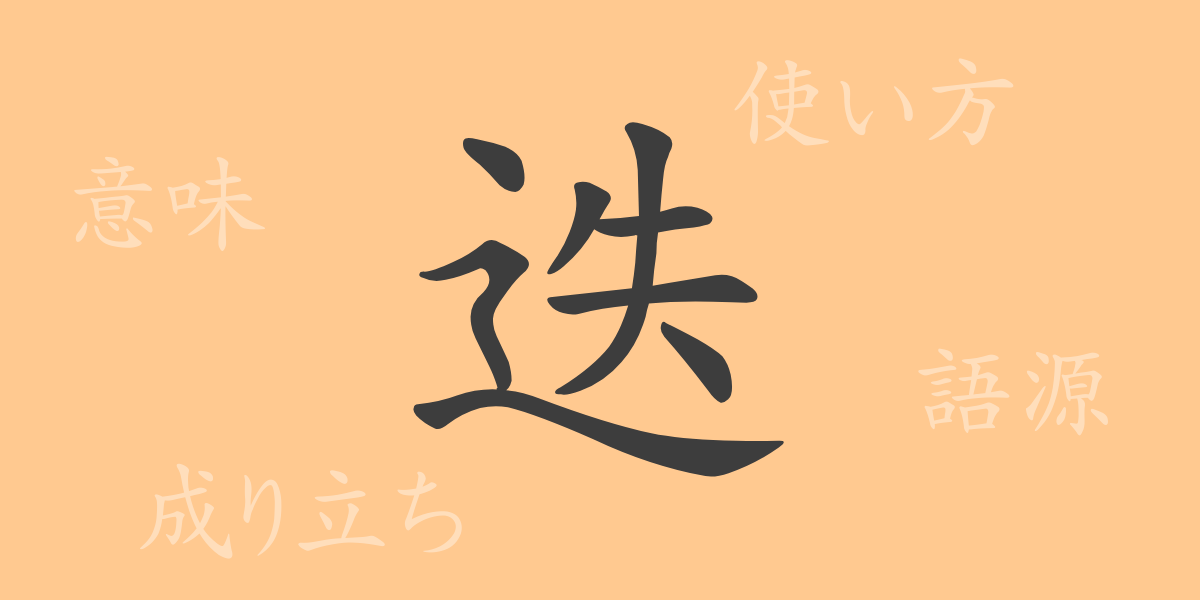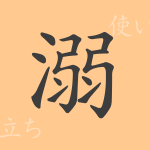Many kanji characters enrich the Japanese language, each with their unique history and meanings. Among these, the kanji ‘迭(テツ)’ is somewhat enigmatic and not commonly encountered in everyday life. This article delves into the fascinating aspects of ‘迭’, exploring its origins, meanings, usages, readings, and related phrases and idioms, offering a journey into the profound history and culture embedded in each kanji character.
Origins of ‘迭(テツ)’
The kanji ‘迭’ originated in ancient China and is classified as an ideogram. It is composed of ‘辵’ (シンにょう), indicating motion, and ‘弟’, representing a younger male or succession. ‘迭’ originally denoted the idea of alternating or repeating actions, reminiscent of the successive steps of walking or the changing roles among siblings. Over time, it has evolved to represent sequences and repetitions in various contexts.
Meaning and Usage of ‘迭(テツ)’
‘迭’ carries meanings associated with ‘alternating’ and ‘repeating.’ In Japanese, it is often used to express concepts like ‘rotation’, ‘layering’, and ‘continuing.’ It is particularly prevalent in business or technical contexts, rather than in casual conversation, highlighting its specialized usage.
Readings, Stroke Count, and Radical of ‘迭(テツ)’
Key details about the kanji ‘迭’ are as follows:
- Readings: On’yomi is ‘テツ’, with no specific Kun’yomi.
- Stroke Count: 8 strokes in total.
- Radical: 辵(シンにょう).
Phrases and Idioms Using ‘迭(テツ)’
There are numerous phrases and idioms that include the kanji ‘迭’, such as:
- 迭代(テッタイ): Meaning to do repeatedly.
- 迭起(テッキ): Refers to something that occurs repeatedly.
- 迭送(テッソウ): Alternately sending.
- 迭罷(テッパイ): Successive dismissal or removal from office.
These phrases reflect the fundamental meanings of ‘迭’, focusing on repetition and alternation.
Conclusion on ‘迭(テツ)’
Although the kanji ‘迭’ may not be familiar to many, understanding its meanings and applications can enrich one’s vocabulary, enabling more nuanced expressions. Learning phrases and idioms containing ‘迭’ can enhance comprehension and appreciation of the Japanese language. This exploration encourages us to pay attention to less commonly used kanji, deepening our linguistic insights.

























